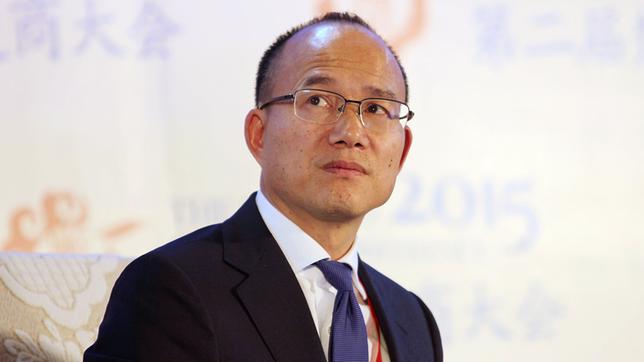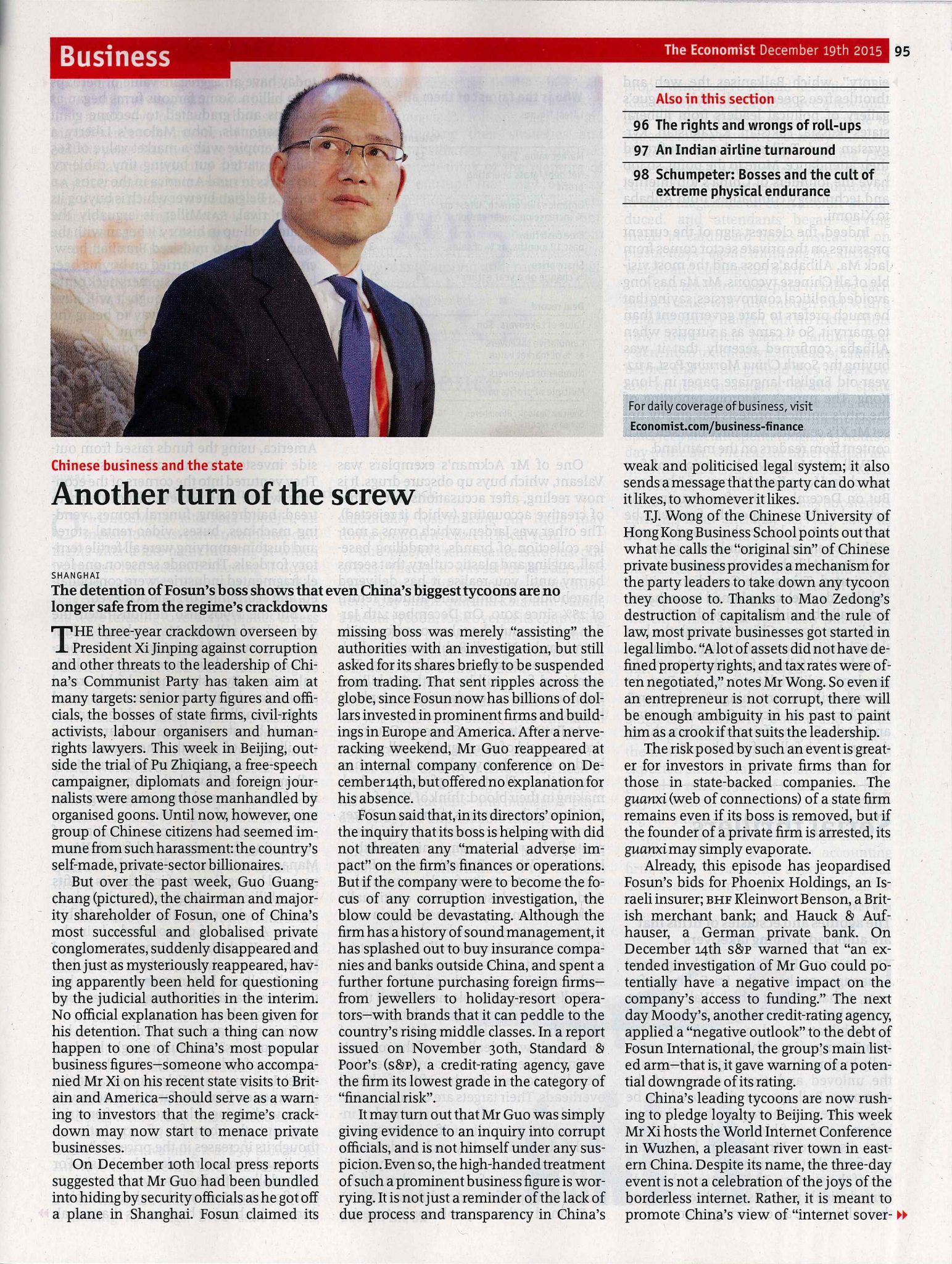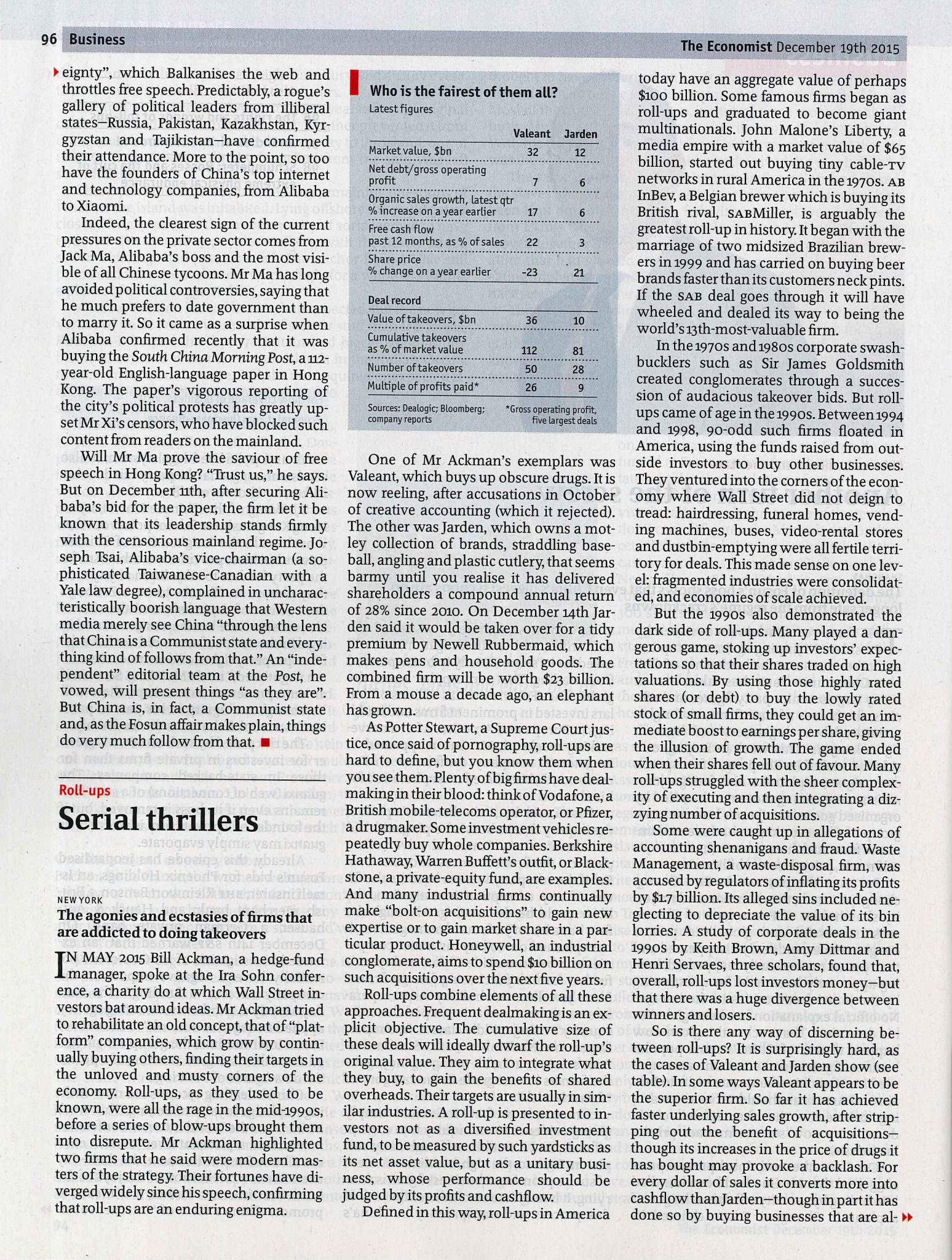Another Turn of the Screw

Commenting on the detention of Fosun’s boss, Prof. T.J. Wong tells The Economist that the “original sin” of Chinese private business provides a mechanism for the Communist Party leaders to take down any tycoon.
The three-year crackdown overseen by President Xi Jinping against corruption and other threats to the leadership of China’s Communist Party has taken aim at senior party figures and officials, the bosses of state firms, civil-rights activists, labor organizers and human-rights lawyers. However, one group of Chinese citizens has seemed immune from such harassment: the country’s self-made, private-sector billionaires.
On 10 December 2015 local press reports stated that Guo Guangchang, the chairman and majority shareholder of Fosun, one of China’s most successful and globalized private conglomerates, suddenly disappeared. After a nerve-racking weekend, Guo reappeared at an internal company conference on 14 December 2015, with no official explanation has been given for his detention. Fosun claimed its missing boss was merely “assisting” the authorities with an investigation. That such a thing can now happen to one of China’s most popular business figures should serve as a warning to investors that the regime’s crackdown may now start to menace private businesses. It is not just a reminder of the lack of due process and transparency in China’s weak and politicised legal system; it also sends a message that the party can do what it likes, to whomever it likes.
In an interview with The Economist‘s China Business Editor and Shanghai Bureau Chief, T.J. Wong, Choh-Ming Li Professor of Accountancy and Director of Centre for Institutions and Governance at The Chinese University of Hong Kong Business School points out that what he calls the “original sin” of Chinese private business provides a mechanism for the party leaders to take down any tycoon they choose to. “A lot of assets did not have defined property rights, and tax rates were often negotiated,” notes Prof. Wong. So even if an entrepreneur is not corrupt, there will be enough ambiguity in his past to paint him as a crook if that suits the leadership, he says
The risk posed by such an event is greater for investors in private firms than for those in state-backed companies. The guanxi (web of connections) of a state firm remains even if its boss is removed, but if the founder of a private firm is arrested, its guanxi may simply disintegrate… Read More (PDF)
Or you can click on the images below for further reading.
Source: The Economist
Date published: 16 December, 2015 / 19 December, 2015 (print edition)
Photo: REX Shutterstock




